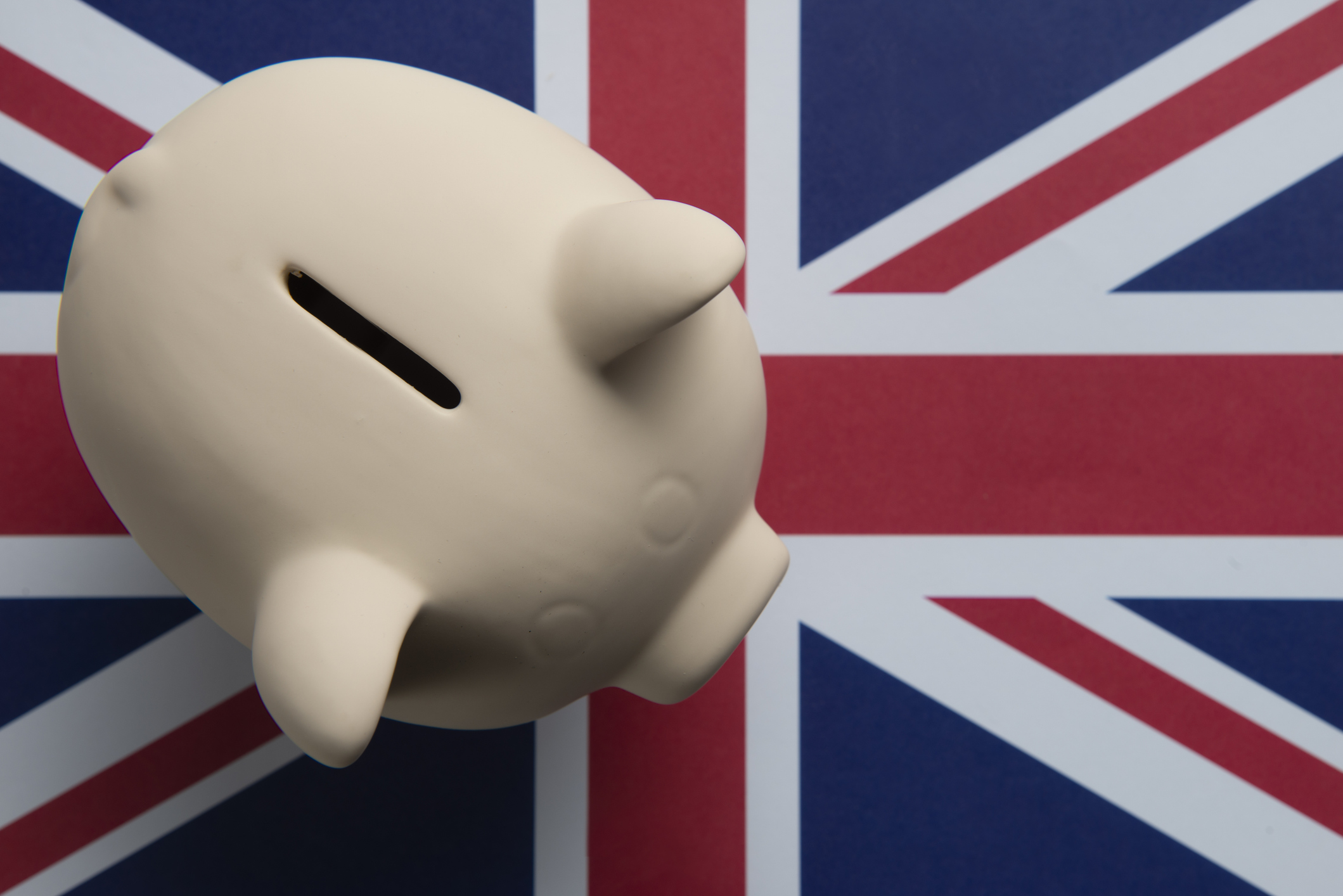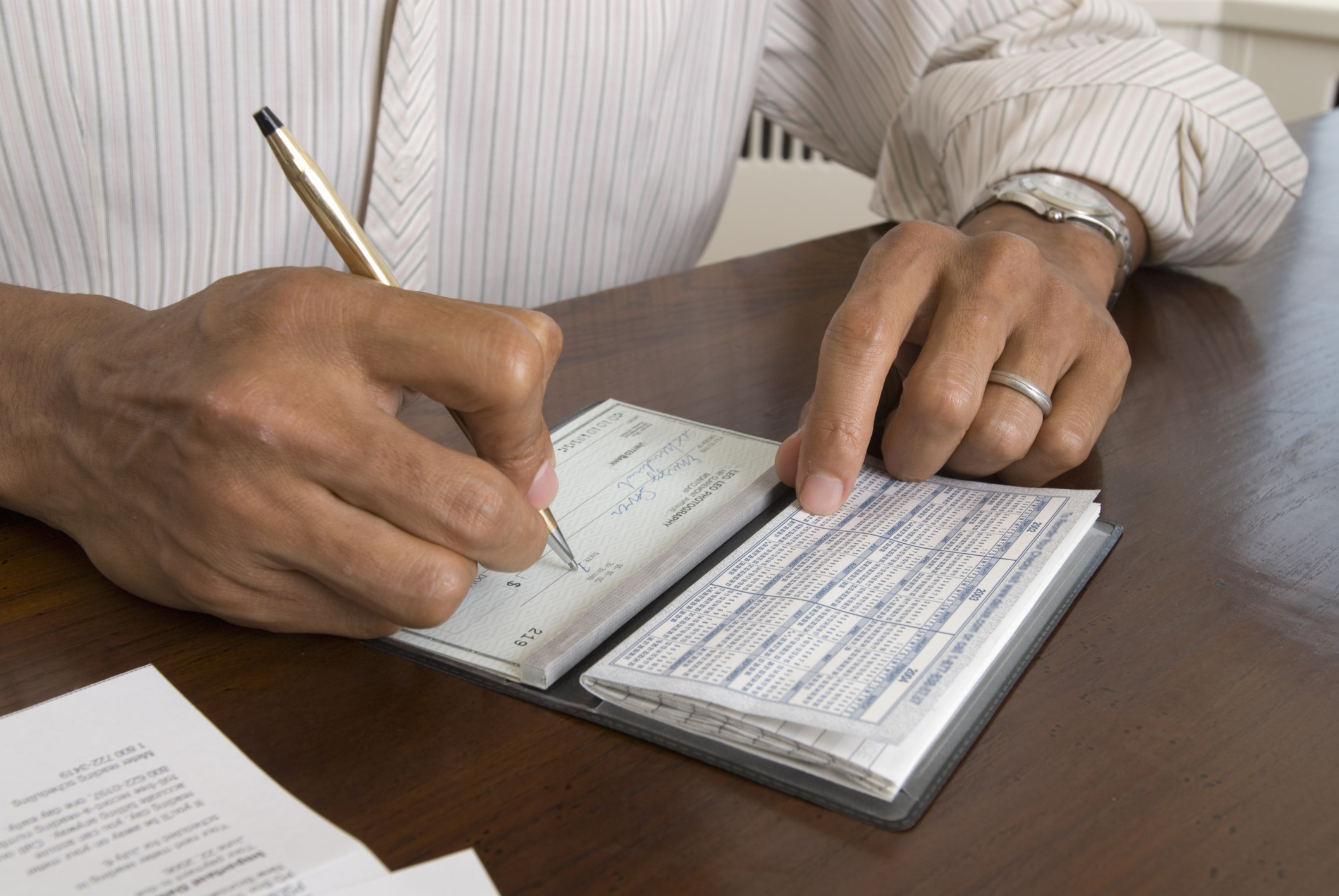Buying vs renting: is is better to own or rent your home?
The higher mortgage rates of recent years have actually made renting comparatively cheaper, analysis suggests. But there are hidden costs to long term renting.

Laura Miller

Get the latest financial news, insights and expert analysis from our award-winning MoneyWeek team, to help you understand what really matters when it comes to your finances.
You are now subscribed
Your newsletter sign-up was successful
Want to add more newsletters?

Twice daily
MoneyWeek
Get the latest financial news, insights and expert analysis from our award-winning MoneyWeek team, to help you understand what really matters when it comes to your finances.

Four times a week
Look After My Bills
Sign up to our free money-saving newsletter, filled with the latest news and expert advice to help you find the best tips and deals for managing your bills. Start saving today!
Mortgage borrowers are thousands of pounds better off than renters when it comes to housing costs over the long-term but the balance between home ownership and renting has changed in recent years, research suggests.
Exclusive analysis of mortgage and rental costs by Moneyfactscompare.co.uk for MoneyWeek has highlighted how many homeowners are now paying higher monthly repayments than renters on average.
Mortgage rates may have fallen in recent months amid interest rate cuts but that only helps those getting a mortgage now and not homeowners in the middle of a fixed rate deal.
MoneyWeek
Subscribe to MoneyWeek today and get your first six magazine issues absolutely FREE

Sign up to Money Morning
Don't miss the latest investment and personal finances news, market analysis, plus money-saving tips with our free twice-daily newsletter
Don't miss the latest investment and personal finances news, market analysis, plus money-saving tips with our free twice-daily newsletter
Homeowners are £6,600 better off on average than renters when it comes to living in a typical UK home over the past 21 years, the research found.
But the balance changed in 2022 after the mini-Budget under then-prime minister Liz Truss sent mortgage rates soaring.
Many homeowners are still on those high rates so are now paying more than the typical average rent.
Adam French, head of news at Moneyfactscompare.co.uk, warned there is a growing ‘two-tier’ property market.
One tier is a group of older homeowners who locked in the low rates of the 2010s enjoying the stability and growth of home ownership since buying as an asset, and another priced out, forced to rent for longer and missing out on the wealth-building benefits of ownership.
So are you financially better-off buying or renting your home?
Mortgages vs rent
High house prices and ever-rising rising rents have made it hard for first-time buyers to know whether they are better off renting or getting on the property ladder.
It is also puts more pressure on the Bank of Mum and Dad, who may have to stump up more cash to help their kids with housing costs.
Moneyfacts analysed the average house price each June between 2005 and 2025 and compared the typical mortgage rate for a 10% deposit and the average rent, according to the Office for National Statistics.
There will of course be regional differences but on average the analysis shows it was cheaper to own a home with a mortgage than rent between 2009 and 2021.
Buyers from that period were helped by the financial crisis of 2008, which saw interest rates drop to record lows and stay at that level for more than a decade.
However, the balance shifted in the aftermath of the mini-Budget in 2022 and it became hundreds of pounds cheaper each month to actually rent rather than own.
Some of this will have been down to higher house prices, which were boosted by stamp duty holidays during the pandemic.
Average rental costs were also cheaper than having a mortgage in June 2025, although the gap has dropped to just £72 per month.
French said: “The changing financial gap between average rent and mortgage payments reveals how a decade of ultra-low interest rates, followed by a rapid rise in borrowing costs reshaped household wealth and widened the generational divide.”
He suggested buyers who purchased early in the 2010s amid cheap credit and rising wages benefitted from both rising property values and low interest costs, a powerful combination for building wealth.
"However, renters saw little benefit," French said, "with rents rising rapidly to a higher level than typical mortgage repayments throughout the decade, meaning would-be buyers were trapped saving for ever-larger deposits and the affordability gap between renting and buying grew".
He added: "The long period of low rates effectively embedded this advantage as property wealth became the main engine of financial security for millions of homeowners.”
| Header Cell - Column 0 | Average house price | Moneyfacts Average Mortgage Rate | Borrowing amount (w/10% deposit) | Monthly mortgage payment | Avg Monthly Rent (ONS) | Differential (monthly) | Annual |
|---|---|---|---|---|---|---|---|
Jun 05 | £144,410.00 | 5.17% | £129,969.00 | £779.00 | £780.00 | £1.00 | £12.00 |
Jun 06 | £154,927.00 | 5.18% | £139,434.30 | £836.00 | £794.00 | -£42.00 | -£504.00 |
Jun 07 | £171,659.00 | 5.88% | £154,493.10 | £995.00 | £800.00 | -£195.00 | -£2,340.00 |
Jun 08 | £167,498.00 | 6.31% | £150,748.20 | £994.00 | £850.00 | -£144.00 | -£1,728.00 |
Jun 09 | £146,984.00 | 3.73% | £132,285.60 | £756.00 | £867.00 | £111.00 | £1,332.00 |
Jun 10 | £158,155.00 | 4.74% | £142,339.50 | £812.00 | £856.00 | £44.00 | £528.00 |
Jun 11 | £154,530.00 | 4.49% | £139,077.00 | £773.00 | £851.00 | £78.00 | £936.00 |
Jun 12 | £156,645.00 | 4.62% | £140,980.50 | £784.00 | £875.00 | £91.00 | £1,092.00 |
Jun 13 | £159,045.00 | 3.75% | £143,140.50 | £736.00 | £894.00 | £158.00 | £1,896.00 |
Jun 14 | £172,331.00 | 3.62% | £155,097.90 | £776.00 | £907.00 | £131.00 | £1,572.00 |
Jun 15 | £181,289.00 | 3.02% | £163,160.10 | £774.00 | £924.00 | £150.00 | £1,800.00 |
Jun 16 | £196,106.00 | 2.81% | £176,495.40 | £814.00 | £954.00 | £140.00 | £1,680.00 |
Jun 17 | £204,347.00 | 2.53% | £183,912.30 | £825.00 | £979.00 | £154.00 | £1,848.00 |
Jun 18 | £210,355.00 | 2.66% | £189,319.50 | £873.00 | £985.00 | £112.00 | £1,344.00 |
Jun 19 | £211,915.00 | 2.65% | £190,723.50 | £880.00 | £1,005.00 | £125.00 | £1,500.00 |
Jun 20 | £216,208.00 | 2.17% | £194,587.20 | £849.00 | £1,024.00 | £175.00 | £2,100.00 |
Jun 21 | £242,777.00 | 2.72% | £218,499.30 | £1,008.00 | £1,036.00 | £28.00 | £336.00 |
Jun 22 | £258,118.00 | 3.30% | £232,306.20 | £1,132.00 | £1,079.00 | -£53.00 | -£636.00 |
Jun 23 | £258,275.00 | 5.34% | £232,447.50 | £1,393.00 | £1,161.00 | -£232.00 | -£2,784.00 |
Jun 24 | £259,605.00 | 5.76% | £233,644.50 | £1,470.00 | £1,260.00 | -£210.00 | -£2,520.00 |
Jun 25 | £269,079.00 | 5.12% | £242,171.10 | £1,416.00 | £1,344.00 | -£72.00 | -£864.00 |
| Row 21 - Cell 0 | Row 21 - Cell 1 | Row 21 - Cell 2 | Row 21 - Cell 3 | Row 21 - Cell 4 | Row 21 - Cell 5 | £6,600.00 | Row 21 - Cell 7 |
How much of your income goes on housing costs?
The rise of mortgage rates in 2024/25 means people often spent more on the mortgage than they did on rent. However, it’s not quite that straightforward, because not only is renting more expensive than a mortgage in London, but when you look at payments as a percentage of income, things change drastically.
Those with mortgages tend to have higher incomes, so on average, people with a mortgage spent 19% of their household income on mortgage payments, whereas private rental payments, excluding housing support, made up an eye-watering 39% of income.
This is according to the government’s 2024/25 English Housing Survey on demographics and household resilience.
This survey also found the average weekly mortgage payment in England was £242. Outside London, it was £220 and in London it was £375.
The average weekly private rent, however, was £250. That’s £207 a week outside London and £393 in London.
The costs of renting aren’t just financial. By choice or necessity, renters tend to move far more often than homeowners. Rising rents can force them into a cycle of renting smaller homes, further from work. It also raises issues for the 32% of private renters with children (up from 30% in 2022/23), who risk having to uproot them from school when their tenancy comes to an end.
High rents also mean less left over to put aside for a rainy day – which is one reason why only 52% of tenants had savings, the government survey found. This makes saving up for a property deposit incredibly difficult. Analysis by Hargreaves Lansdown found, on average, renters have just £39 left at the end of the month. The resilience gap between renters and owners tends to grow as we get older, which is why Generation X renters have even less – at £28.
Renting into retirement
We are getting older before we buy a first home and this can have knock-on effects for how much we pay in mortgage or rental costs – and our retirement income.
The average age of first-time buyers was 34 in 2024/25 – up from 32 in 2019/20 – according to the English Housing Survey.
It also found almost three quarters (74%) of households headed by someone aged over 65 have achieved the retirement dream of owning their homes outright.
However the same can’t be said for the remainder, who enter their older years with housing costs still to pay. Helen Morrissey, head of retirement analysis at Hargreaves Lansdown, said this could have “major consequences” for their retirement planning.
“Five per cent still have a mortgage – this will eat into their retirement savings, but at least there should be some endpoint in sight. However, 6% pay rent privately, while the remaining 15% are in social housing so the rental situation will continue into the longer term,” she said.
“It’s a situation that is only going to grow as high rents mean people either get on the housing ladder late or not at all, and this means they carry extra housing costs into retirement,” Morrissey added. Figures from UK Finance show there were 39,950 new loans advanced to older borrowers in Q3, up 18.4% year-on-year.
High rents mean people have less money to put aside for their future. Just 32% of households who rent are on track for an adequate retirement income compared to 64% of those who own outright, according to Hargreaves Lansdown’s analysis.
“However, the higher costs they need to pay into retirement for their accommodation means they actually need to have more put aside to meet their day-to-day needs,” Morrissey added.
Is it better to rent or buy?
Cost is just one factor when deciding between renting and buying a property.
Renting gives you flexibility while owning a home gives you an asset that typically rises in value and can be more stable as you are in control of your own property.
But high inflation may limit the scope for further interest rate cuts, keeping mortgage costs high.
French said: “Many homeowners' monthly mortgage repayments exceed typical rents after average mortgage rates more than tripled following the Bank of England sharply increasing rates to combat inflation.
"This has dramatically reduced how much buyers can borrow, and house prices have softened as a result with the key dynamic remaining the same: the balance between rates and prices may shift, but the underlying strain on households’ budgets will eventually return to a tolerable range."
Little has changed for a growing number of renters though who are competing for a tighter supply of rental properties which is keeping rents at around the same share of income.
French said: "Not only is it as tough as it has ever been to save for a deposit, but now the immediate financial hit of taking out a mortgage has become even harder to justify.”
That may leave renting as the only option but French says this doesn’t have to be the poor choice it is often portrayed to be, adding: “In a high-rate environment, renting can offer flexibility, particularly for younger workers, those unsure of where they want to settle, or anyone stretching their finances to breaking point to buy.
“Without the burden of maintenance costs or exposure to the risk of falling house prices, renters may find that they can focus on saving or investing in other assets that may offer better returns over time.”
Get the latest financial news, insights and expert analysis from our award-winning MoneyWeek team, to help you understand what really matters when it comes to your finances.

Marc Shoffman is an award-winning freelance journalist specialising in business, personal finance and property. His work has appeared in print and online publications ranging from FT Business to The Times, Mail on Sunday and the i newspaper. He also co-presents the In For A Penny financial planning podcast.
-
 Should you buy an active ETF?
Should you buy an active ETF?ETFs are often mischaracterised as passive products, but they can be a convenient way to add active management to your portfolio
-
 Power up your pension before 5 April – easy ways to save before the tax year end
Power up your pension before 5 April – easy ways to save before the tax year endWith the end of the tax year looming, pension savers currently have a window to review and maximise what’s going into their retirement funds – we look at how
-
 Why Scotland's proposed government bonds are a terrible investment
Why Scotland's proposed government bonds are a terrible investmentOpinion Politicians in Scotland pushing for “kilts” think it will strengthen the case for independence and boost financial credibility. It's more likely to backfire
-
 How have central banks evolved in the last century – and are they still fit for purpose?
How have central banks evolved in the last century – and are they still fit for purpose?The rise to power and dominance of the central banks has been a key theme in MoneyWeek in its 25 years. Has their rule been benign?
-
 Brits leave £31.6 billion in savings accounts paying 1% interest or less – do you need to switch?
Brits leave £31.6 billion in savings accounts paying 1% interest or less – do you need to switch?Eight million Brits hold money in savings accounts that pay 1% interest or less, meaning the value of their cash is being eroded by inflation.
-
 Hargreaves Lansdown launches first cash ISA – how does it compare?
Hargreaves Lansdown launches first cash ISA – how does it compare?Hargreaves Lansdown is offering an own brand cash ISA for the first time with their new easy-access account. How does the interest rate compare to other products?
-
 Is Britain heading for a big debt crisis?
Is Britain heading for a big debt crisis?Opinion Things are not yet as bad as some reports have claimed. But they sure aren’t rosy either, says Julian Jessop
-
 ‘My NS&I one-year British Savings Bond is maturing – what should I do with my savings?
‘My NS&I one-year British Savings Bond is maturing – what should I do with my savings?Thousands of savers will see their fixed-rate savings accounts mature next month. We consider whether you should stick with NS&I or move to a competitor
-
 How to pay in a cheque
How to pay in a chequeReceiving or writing a cheque has become much less common in recent years as instant bank transfers have grown in popularity. Amid widespread bank branch closures, we explain what to do if you get a cheque, and how you can pay one into your bank account.
-
 Why investors can no longer trust traditional statistical indicators
Why investors can no longer trust traditional statistical indicatorsOpinion The statistical indicators and data investors have relied on for decades are no longer fit for purpose. It's time to move on, says Helen Thomas